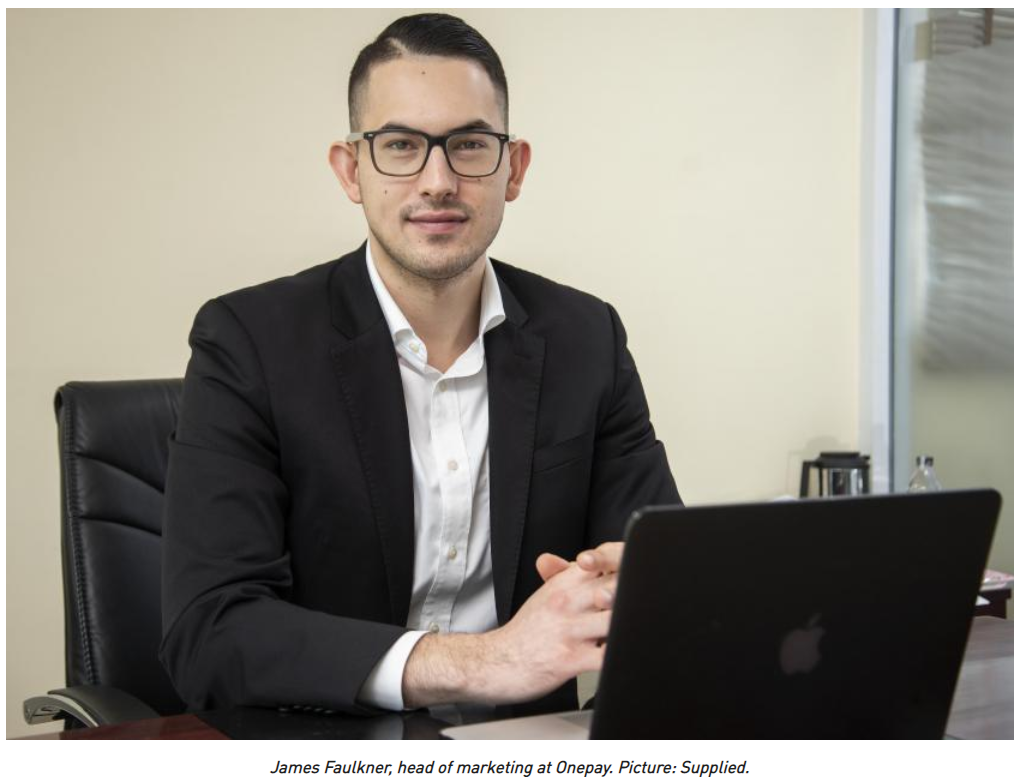Onepay app helps Myanmar move to a cashless society
The e-payments space has been one to watch during the past 10 years in Myanmar, with Onepay’s interbank app being the most recent innovation to reach the market.
Launched earlier this month, Onepay’s mobile platform allows users to transfer funds among seven local institutions – Asia Green Development Bank (AGD Bank), Ayeyarwady Bank (AYA Bank), CB Bank, KBZ Bank, Myanma Apex Bank, United Amara Bank, and Yoma Bank.
The company partnered with AGD Bank to launch the app at the height of the COVID-19 restrictions.
Almost a month later, the app already has 150,000 registered users. James Faulkner, head of marketing at Onepay, discussed the future of the app, transaction fees and digital payments in Myanmar:
How is Onepay different from other mobile money services?
Onepay is the only mobile money app that offers a completely digital experience when registering. Users can complete the registration process in the app without having to submit identification documents to an agent. This is a prime example where we register all our verified users in the app.
Also, Onepay is different from other mobile money services because it allows users to top up their mobile wallets using Visa, Mastercard and MPU cards. You don’t need to be an AGD Bank customer to make transfers, and you can even use foreign cards to top up the wallet. Onepay, with support from AGD Bank, offers the only mobile interbank service in Myanmar. It allows users to transfer money between AGD Bank and six other major banks in Myanmar. By June 2020, we plan to expand to all banks in Myanmar.
Myanmar’s unbanked population is large. How will Onepay improve that?
Early technology adopters look for secure apps that seamlessly combine lifestyle and financial services. Customer feedback showed us that consumers wanted an app that allows them to pay into different bank accounts, which is the main feature of Onepay. This encourages financial inclusion, as customers will be using the Myanmar Payment Union (MPU) network, Visa or Mastercard to top up the Onepay wallet.
Onepay users do not need a bank account to use the app, which makes it ideal for the unbanked population in Myanmar. Users can add funds using the cash-in services through the 123 service or Onepay agents throughout the country.
There are some barriers to increasing financial inclusion in Myanmar. Many people don’t have official national registration cards, which are required to open a bank account. This is especially true in rural areas, where people rely heavily on cash.
Onepay helps because it is available to anyone with a smartphone, and doesn’t require a bank account. There aren’t bank branches in every city or town, but Onepay offers direct access to mobile money payments. Users can register with only a smartphone and SIM.
How do individual banks set their transaction fees?
Transaction fees will often vary by city and location. For example, the fee will be based on the origin and destination of the payment and the transaction costs. Like all banks, we must cover the fixed fee set by the Central Bank of Myanmar.
Are the fees – as much as K5,000 for some transactions – likely to fall?
Onepay does not charge additional fees. They remain the same even if a user makes the transaction at a branch. We would like to offer users lower fees, but like everyone else in the industry, we’re reliant on regulations. Infrastructure and technology also affect fees.
As an extra benefit to users, we have waved all fees when they transfer money to any AGD Bank account. We also offer users promotional periods, and have waived fees for transfers to AYA Bank and Yoma Bank.
Transactions take two days. Does this give apps like WavePay and OK Dollar an edge?
The lengthy transaction time is something we’re working on. It’s all due to the lack of infrastructure. When Onepay launched, we said it would take two days, but it is now down to one business day. We’re making significant investments to improve the app. Apps like WavePay and OK Dollar target rural areas where the focus is cash payments, but with Onepay you can send money from anywhere with the click of a few buttons.
We know that users sometimes need to send money to a bank account, rather than to another person. Apps like WavePay and OK Dollar don’t offer that service.
With currencies like Ripple and Stella Lumens being trialed with banks overseas, could cryptocurrencies be useful for cross-border payments and remittances in Myanmar?
Like the rest of the industry, we’re still analysing cryptocurrencies. We don’t see it being a cross-border service, and we would need to see what regulations would be implemented and how safe it would be for our users before we’d think about it.
What are Onepay’s plans for advertising and promoting the app?
Due to the COVID-19 pandemic, we’ve had a big push on digital platforms for our advertising, including social media and Google Ads. We also plan to work with local influencers in the post-pandemic period. We previously promoted our services using targeted marketing such as roadshows, and we expect that to continue once the pandemic ends.
How many registered users do you have, and what kind do you aim to attract?
Onepay has over 150,000 users, and our main goal has been to expand our network in urban areas. We’ve seen Yangon as our main focus recently, and we’ve been steadily increasing our urban users.
The rise of new technology in Myanmar has led to this new trend of mobile payments. Apps like Onepay that offer secure digital payments are helping to move Myanmar toward a cashless society. Early technology adopters and tech-savvy users appreciate the security and convenience that Onepay offers, and have been crying out for an app that seamlessly combines lifestyle and financial services in one platform.
—
This interview was edited for clarity and brevity.
Source: https://www.mmtimes.com/news/onepay-app-helps-myanmar-move-cashless-society.html


 English
English




